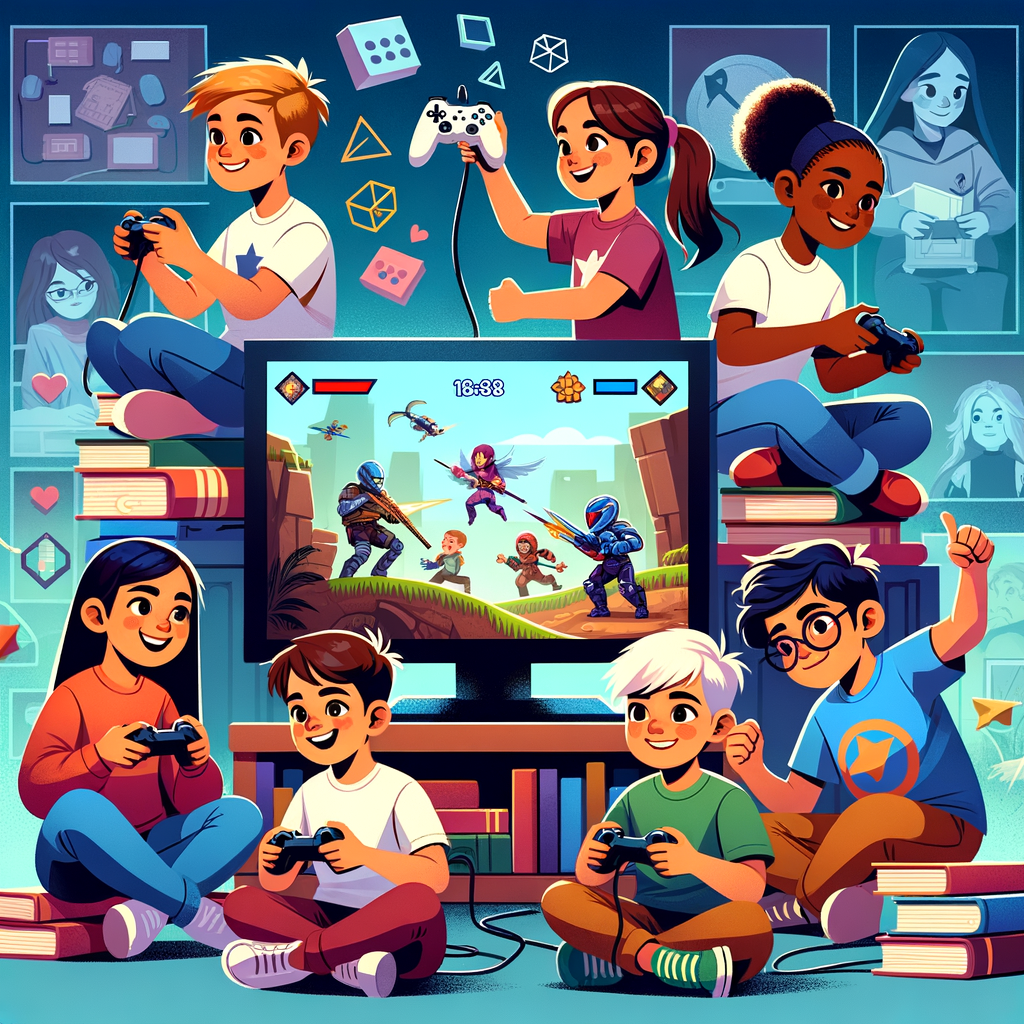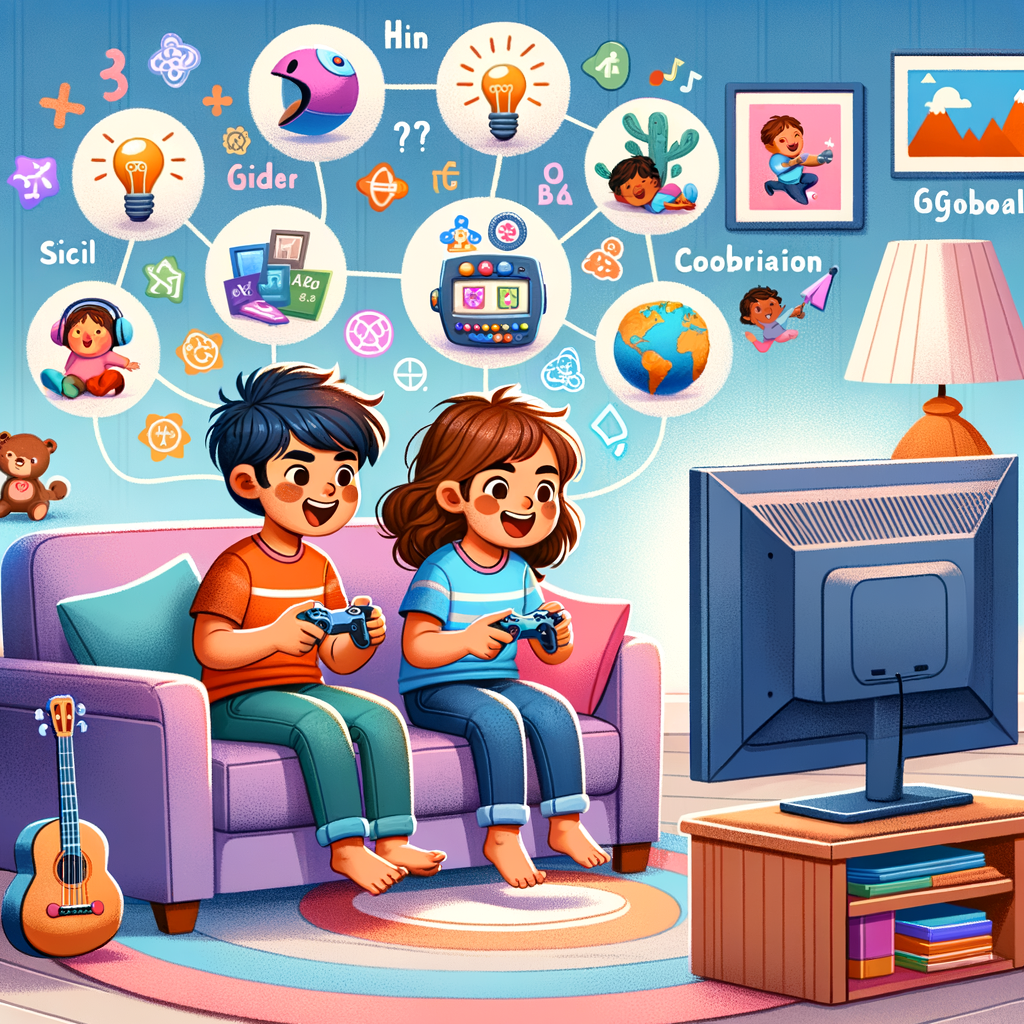How does video games help kids?

- Cognitive skills development: Video games require players to use their problem-solving, strategic thinking, and critical thinking skills to progress through levels and challenges. This can help improve their cognitive abilities, decision-making skills, and memory.
- Hand-eye coordination and reflexes: Playing fast-paced or action-packed video games can help improve hand-eye coordination and reflexes, as players need to react quickly to on-screen stimuli.
- Social interaction: Many video games have multiplayer features that allow players to connect with friends or other players online. This can help improve social skills, communication, and teamwork.
- Stress relief: Playing video games can be a way for kids to unwind and relax after a long day. Engaging in gaming can help reduce stress and provide a healthy outlet for pent-up emotions.
- Creativity and imagination: Some video games encourage players to think creatively, problem-solve, and use their imagination to come up with new strategies or solutions. This can help foster creativity and innovative thinking in kids.
- Tech-savviness: In today's digital age, being proficient in technology is essential. Playing video games can help kids become more comfortable with technology and improve their tech skills. Overall, video games can provide a variety of benefits for kids, including cognitive development, social interaction, stress relief, creativity, and tech skills. However, it's important for parents to monitor their children's gaming habits and ensure that they are playing age-appropriate games in moderation.

335